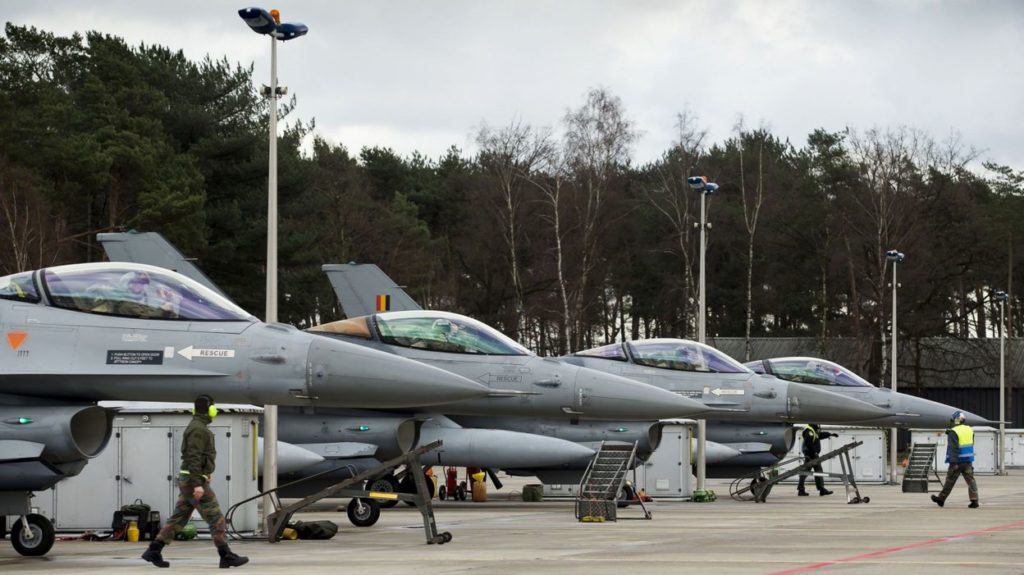A draft report published by the NATO Parliamentary Assembly confirms that Belgium is one of several European countries storing hundreds of United States nuclear bombs, doing away with years of neither confirm nor deny policy observed by federal authorities, local media reported Tuesday.
The document, published on the Assembly's website in April but redacted on July 11, states that between ten to 12 U.S. weapons of nuclear capacity are stored in the Kleine Brogel airbase, in the province of Limburg.
Belgian daily De Morgen obtained a copy of the document before its final paragraph was replaced. According to the outlet, the document previously read:
"In the context of NATO, the United States is deploying around 150 nuclear weapons in Europe, in particular B61 free-bombs, which can be deployed by both US and Allied planes. These bombs are stored in six American and European bases: Kleine Brogel in Belgium, Büchel in Germany, Aviano and Ghedi-Torre in Italy, Volkel in the Netherlands and Inçirlik in Turkey."
The updated version of the report did away with the specifications regarding the location of the airbases and instead listed the five countries, referring to them as "European allies often cited as operating" aircraft capable of carrying nuclear weapons.
The fact that Belgium and other members of the military alliance store U.S. nuclear weapons is not news: in 2015, the U.S. allocated millions of dollars for a new nuclear weapons maintenance building, according to the Dutch-language daily.
The parliamentary report, obtained by Flemish green party Groen, marks a departure from previous government and defence policy to neither confirm nor deny the presence of such weapons in Belgium.
It also puts into question Belgium's adherence to the agreement for the non-proliferation of nuclear weapons, which it ratified in 1968.
Groen party member Wouter De Vriendt said that the report now proved the "hypocrisy" around the subject of nuclear-weapon possession.
New aircraft ordered by outgoing Prime Minister Charles Michel is reportedly compatible with a new generation of nuclear bombs, according to the daily, raising the question of whether the incoming federal leaders will approve the deployment of new weapons into the country.
"Everyone knows that the bombs are there. Only the government blocks any democratic debate by denying their presence," De Vriendt told De Morgen.
Gabriela Galindo
The Brussels Times
Correction: This article has been amended to clarify that the document in question was a draft parliamentary report, published on the website of the NATO Parliamentary Assembly.

